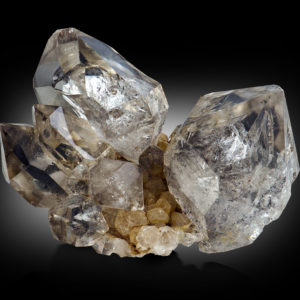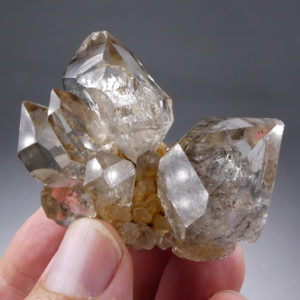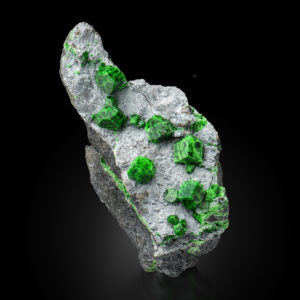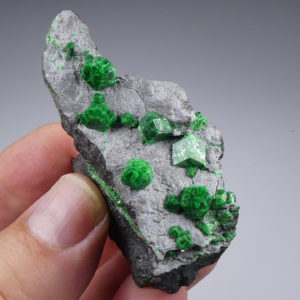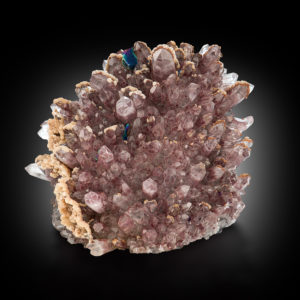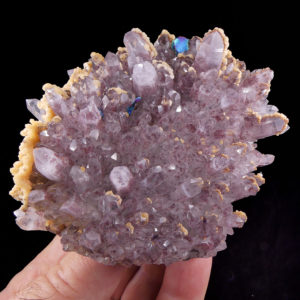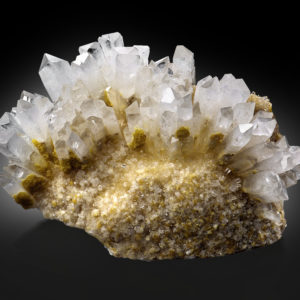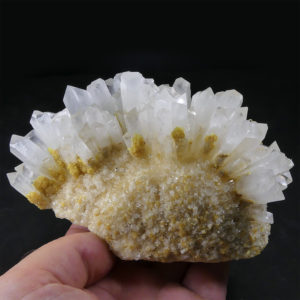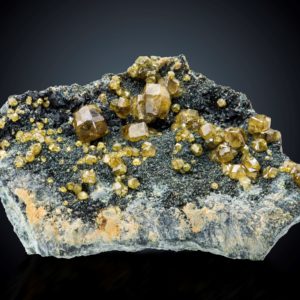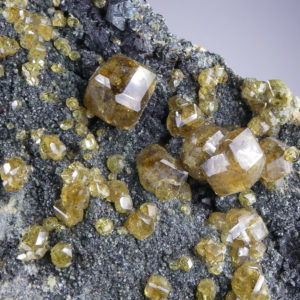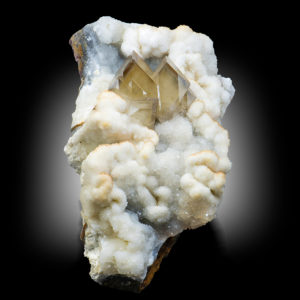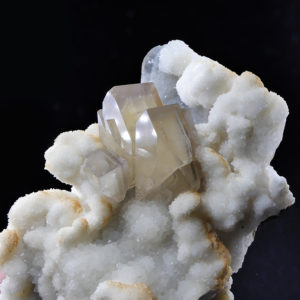FLUORITE – China – GFS0400
In stock
€ 380,00 +TAX
Fluorite, Quartz
Huanggang Fe-Sn deposit, Hexigten Banner, Chifeng City, Inner Mongolia, China
8x8x6.5 cm.
From this well-known locality, here is an excellent aesthetic specimen, generously sized, composed by a pyramidal Fluorite crystal with sharp edges, complex satin faces showing good luster, and a beautiful purple color, vibrant purple when backlit, with shifting hues between red and yellow in some areas.This piece is nicely complemented with a drusy quartz on one side.
The Huanggang deposit is located in the southern part of a mountainous area called “Great Xing’an Range”, approximately 30 km west of Linxi town, Chifeng city, Inner Mongolia. Discovered in 1959 it is the largest and unique Fe–Sn skarn deposit in northern China, occurring in the contact zone between carbonate rocks of the Early Permian Dashizai and Huanggangliang formations and two Cretaceous orthoclase granite intrusions (age: 67-115 Ma).
Geomineral map of the “southern Great Xing’an Range” :
Cu-Mo deposits > 1-Aolunhua; 2-Banlashan; 3-Yangchang; 4-Laojiagou; 5-Naoniushan; 6-Lianhuashan; 7-Longtoushan; 8-Mengentaolegai; 9-Budunhua; 10-Aoergai
Sn-polymetallic deposits > 11-Dajing; 12-Huanggang; 13-Baiyinnuoer; 14-Maodeng; 15-Baogaigou; 16-Chamuhan; 17-Haobugao; 18-Aonaodaba
Pb-Zn-Ag deposits > 19-Bairendaba; 20-Weilasituo; 21-Daolundaba.
The geology of Huanggang is characterized by complex tectonic and geological processes. The region has experienced multiple tectonic events, including crustal extension and compression, which have led to the formation of various mineral deposits. The Huanggang Fe-Sn deposit itself is situated within a geological setting dominated by metamorphic and igneous rocks, with mineralization occurring in veins and breccia zones associated with faults and fractures.
The formation of fluorite in this deposit is primarily associated with hydrothermal processes. During the mineralization event, hydrothermal fluids rich in fluorine and other elements interacted with the surrounding rocks, leading to the precipitation of fluorite. These fluids were likely sourced from magmatic intrusions or deep-seated hydrothermal systems. Field evidence, petrographic observations, and across-cutting and replacement relationships, indicate three stages of hydrothermal activity during the formation of the Huanggang deposit. The mineralogy is briefly summarized below, within a framework of these three main paragenetic stages. For more info ![]()
In stock
Additional information
| Weight | 0.354 kg |
|---|---|
| Dimensions | 8 × 8 × 6.5 cm |
| Country | |
| Location | Huanggang Fe-Sn deposit, Hexigten Banner, Chifeng City, Inner Mongolia |
| Species |



















